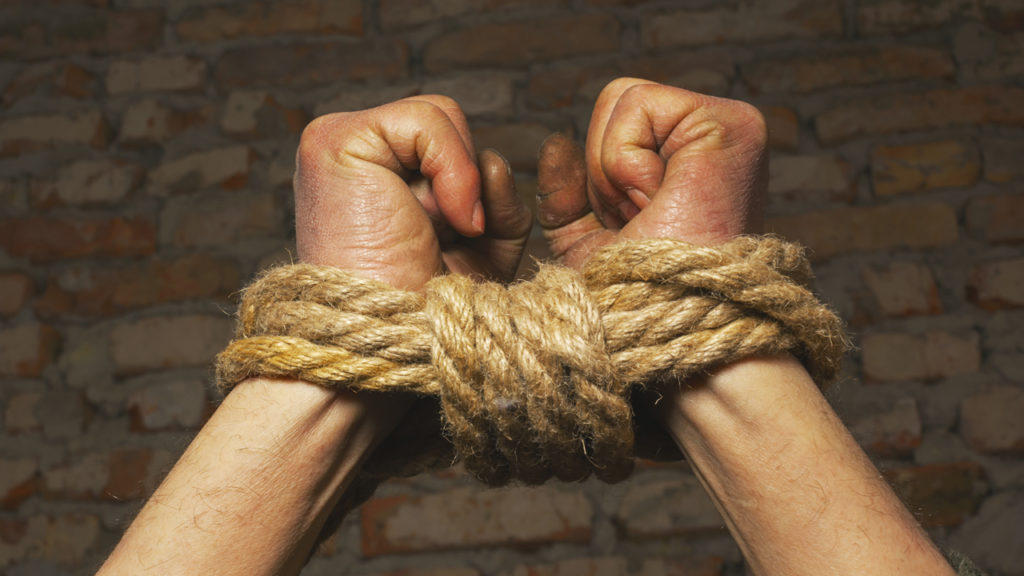Part 1: The Thrill of Dishonoring My Father »
I tried to confront my dad about his failures one time when I was a sophomore in college. It didn’t go well.
We were getting to know each other again after being estranged for three years. Because he lived 12 hours away, we talked over the phone, building an awkward, on-and-off, long-distance relationship.
Dad talked more than I did, sharing his thoughts on theology or retelling stories from his childhood, but unfortunately, that particular night he wandered into a prickly topic: who was at fault for our family’s demise.
To my surprise, he hinted that my mom shared in the blame. Wrong move.
As my mother’s self-appointed defense counsel, I began making the case for his failure as a father, his failure as a husband and his general failure as a human being. Naturally, Dad got defensive, and when I pressed harder, he blew up.
He roared into the phone, defending himself the best he could, rebuking me for my disrespect and ignorance. As he droned on, I angrily wiped away hot tears and waited for him to shut up. And when he finally did, I abruptly ended the conversation, diagnosed him as clinically delusional and decided I didn’t care if we ever talked again.
Love Wasn’t Enough
If it hadn’t been for Dad’s persistent phone calls, it probably would’ve been years before we spoke again. But he eventually did call and acted as if the argument had never happened. I, however, had tucked it in my mental file of offenses against him, which I regularly opened and shared with close friends.
I didn’t see my attitude toward him as particularly unforgiving. I saw it as downright gracious. After all he had done – all the ways he failed our family – I figured he should be grateful if I answered his phone calls. And the thing was, he really was grateful when I picked up the phone. And even when I didn’t pick up the phone or return his call, he would always call back.
Despite my coolness to my dad, he regularly showered me with sincere, tearful affirmations of love. I figured the affirmation was nice and all, but I wanted to hear tearful affirmations of contrition.
The closest he came was one time when he said, “You kids have suffered enough for my big ideas.” I wrote the quote in my journal, figuring it was the best apology I would ever get out of him. I was wrong.
Full Apology, Conditional Forgiveness
Ten years later, early in the morning on my wedding day, Dad apologized.
It all started when Dad didn’t show up for my low-key bachelor party, and I presumed it was because he needed sleep. When I came home to find him reading a book, it pricked a nerve.
After I sat down to chat with him, we began reminiscing about my childhood, a sensitive topic. Although I knew it was risky, I began diplomatically recalling some of the more painful memories of him. And he remained silent until I stuttered, “Dad, I mean – I just wish you would – can you just – um –”
“Go ahead and say it,” Dad said.
“Could you just say you’re sorry? You’ve never done that.”
He paused, then looked at me and said, “Son, I’m sorry. And though you may not see it on my face, words can never express how much I regret the price you’ve paid for my bad choices.”
I couldn’t ask for much more than that. I walked over to him, gave him a hug and told him he was unconditionally forgiven – and I believed it. The problem was that my pardon was based on the assumption that he would never re-offend. In other words, I still hadn’t forgiven him.
My Father’s Accuser
Several months later, my dad proved to be a normal human being and failed again. When he didn’t show up for a long-planned Thanksgiving meet-up, it resurrected all of my old offenses against him and rendered his wedding day apology meaningless. I didn’t say anything to him about it though. I figured it was pointless; he would never change.
Four months later, we were on the phone, and for some reason, he brought up an awkward memory he had mentioned many times before.
“Joshua, you know, I still can’t forgive myself for that time I beat you so hard when you were just a little boy. I still remember the way you cried, and it just kills me,” he said.
I found it odd – if not annoying – that Dad held onto one, memorable mistake, not the whole list. He needn’t worry. I was keeping the list for him, and the Thanksgiving no-show was my latest grievance. Throwing caution to the wind, I brought it up, and he said he knew it had bothered me.
“You know, Dad, your failure to show up at Thanksgiving probably wouldn’t have been that big of deal if it weren’t so similar to a number of things you’ve done before,” I said. And then, like a prosecutor in closing argument, I found myself naming all his worst offenses. I angrily cited his three-year absence from my life, the litany of important events he missed, and the unmentionable police car chase. And when I ran out of accusations, I paused, shaking, nervously awaiting his response.
“You know,” Dad said, “for the first time, I think I realize our relationship is as complicated as mine was with my daddy. And I’m sorry.”
Grace for the Offenders
The contrast between Dad’s humility and my anger left me with the conviction that, in my unforgiveness, I had become the aggressor. His refusal to defend himself had suddenly taken the pleasure out of fighting him and made me want to love my broken father – not punish him.
At that moment, God showed me something that helped me see how sorry Dad really was.
“Dad,” I said. “I want to say something about that time you beat me too hard when I was little. Even though you can’t remember every wrong you committed as a father, I think you place all your guilt in that one incident.
“And if that’s what’s going on here, then I want you to do something: Take all those offenses I’ve named and just place them in that beating, OK? And with that in mind, please know that I forgive you for beating me so hard that time. Do you accept my forgiveness?”
I could hear Dad crying on the other end of the phone. “Yes, I accept your forgiveness,” he sobbed. “It’s all under the blood of Jesus.”
I hate to admit it, but it was several weeks before I told Dad I was sorry for the years of disrespect. But when I did, he graciously accepted and, unlike me, never brought it up again.
Setting Hostages Free
Some people envy me for having a dad who was willing to humbly apologize for his failures. I envy the people who accept their parents’ brokenness and love them as they are. Those people have discovered the freedom of letting God be God and their parents be humans. If only I had learned that sooner.
No doubt, there were many times in my 15 years of resentment that I thought I had forgiven my dad, but forgiveness is a product of unconditional love. When I pardoned Dad, it was a product of obligation, indifference or the assumption that he wouldn’t re-offend.
In demanding that Dad change and apologize before I would truly forgive, I held him hostage to a standard he could never meet, and I held myself hostage to bitterness. And the worst consequence of all was the Dad-shaped gulf between God and me, a gulf I couldn’t see because I was blinded by self-righteousness.
I wish I could go back and talk myself into cutting the years of resentment short – God knows a small handful of pastors and friends did. But I can’t, so I enjoy the time Dad and I have together now – two imperfect people, telling their redemption story, hoping others will learn what it took so long to understand: that love covers a multitude of sins, and one of those sins is unforgiveness.
Copyright 2012 Joshua Rogers. All rights reserved.












